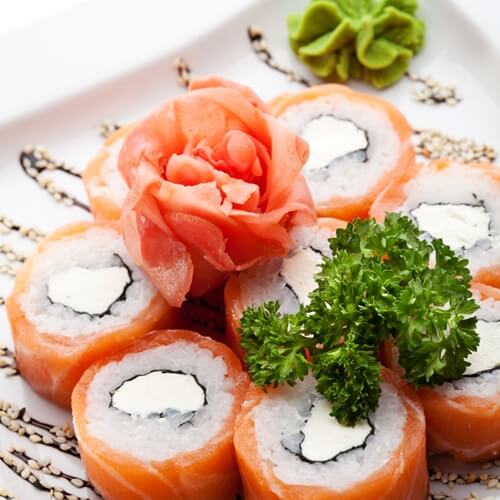The Truth About Wasabi

What’s the real deal with wasabi? The fact is that even if you think you love the stuff, you might have never truly tasted it. Sushi aficionados are probably very familiar with the green, spicy paste that’s served next to their favorite eel tempura or California roll, but the truth is many restaurants make fake wasabi and pass it off as the real thing.
What is wasabi?
Wasabi is a root that is in the same family as horseradish and mustard. All three of these plants provide a spicy, aromatic element to food and work to enhance flavor. However, wasabi is rarer than the other two herbs and can be extremely expensive. This is one of the reasons why most restaurants simply use horseradish and green food coloring to create a pseudo-wasabi. Wasabi is native to Japan, but even there the demand is too high to provide real wasabi for the population.
Cooking with wasabi
Wasabi is known to give fantastic flavor to sushi or fish, but it can also be a great addition to steak or any other meat entree. Wasabi has even been used to flavor limited edition beers. The wasabi root is where the most potent spice is, which is why it is utilized for creating the paste that accompanies sushi. The root must be grated immediately before it is used in the paste, because wasabi will lose its flavor in around 15 minutes. Wasabi is desirable because it generally has a smoother taste than horseradish and has a less intense aftertaste.
The leaves of the wasabi plant are good for salads, providing a spicier element than lettuce or cabbage. The stems of the wasabi plant, known as petioles, can be chopped up and used as a garnish in mashed potatoes, mixed vegetables or other dishes.
Online culinary courses are a great way to discover more ways to be creative with this delicious root.
The health benefits of real wasabi
In its native home Japan, wasabi is believed to have many medicinal qualities. Wasabi is a cruciferous vegetable, grouping it in the same healthy family as kale and cabbage. Wasabi is also considered a natural sanitizer, which is one of the reasons it complements sushi well. Certain health risks, such as food poisoning, are associated with raw fish, and wasabi helps eliminate potentially harmful germs.


